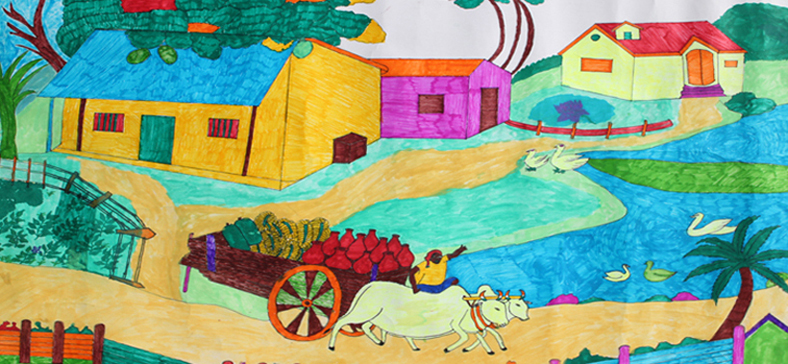Joyful learning
Concept of Joyful learning :
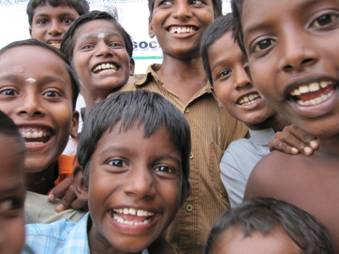 LEAF Society strongly believes that, children could be used as the effective change agents, if their leanings and environments are fine tuned effectively. LEAF Society is having 30 Joyful learning centers across Namakkal district covering rural children from Namakkal, Rasipuram and Senthamangalam blocks and tribal children from Kolli Hills region. We are keeping these Joyful learning centers as a base for all our project interventions like promotion of safe sanitation and drinking water practices or increasing negotiating skills of rural & tribal com munities using RTI act. Children from these centers are the key for us and through them; we are trying to bring the desired change among communities. We have more than 450 children from three blocks.
LEAF Society strongly believes that, children could be used as the effective change agents, if their leanings and environments are fine tuned effectively. LEAF Society is having 30 Joyful learning centers across Namakkal district covering rural children from Namakkal, Rasipuram and Senthamangalam blocks and tribal children from Kolli Hills region. We are keeping these Joyful learning centers as a base for all our project interventions like promotion of safe sanitation and drinking water practices or increasing negotiating skills of rural & tribal com munities using RTI act. Children from these centers are the key for us and through them; we are trying to bring the desired change among communities. We have more than 450 children from three blocks.
These joyful learning centers are not tuition centers replicating what is being done at schools rather are centers filled with Joy for children. They learn new – life skill oriented things with fun, joy and happiness. These centers are colorful with plays, games, songs, and sports. Everyday children meet at the village to share & learn about General Knowledge, Thirukkural, Yoga, child rights, personal hygiene, waste management, Right to Information, kitchen garden, etc. Variety of things and learning’s and responsibilities make children happy and the attendance is normally full in these centers .
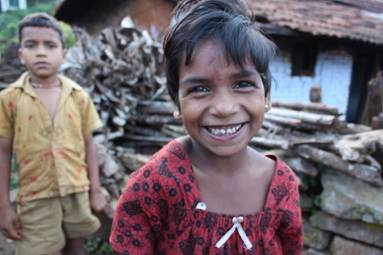 Our centers have brought various changes in communities and especially among our center children, the awareness level on personal hygiene, safe drinking water practices, sanitation practices, on their Rights, protection have increased to greater extent. Even the attendance in schools & enrollment has also gone up, due to intervention of our centers.
Our centers have brought various changes in communities and especially among our center children, the awareness level on personal hygiene, safe drinking water practices, sanitation practices, on their Rights, protection have increased to greater extent. Even the attendance in schools & enrollment has also gone up, due to intervention of our centers.
It’s a visible change that these children are even demanding their parents to follow the same practices, which they are following like, washing hand before meal, maintaining cleanliness at their houses, safe sanitation practices, dental cleanliness, etc. We have also 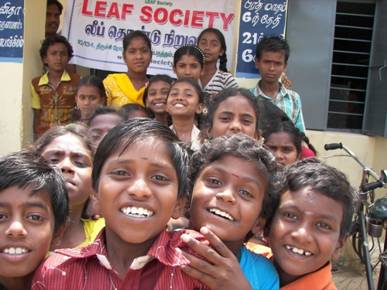 witnessed a change in the perspectives of the parents those who are part of the Parent Teachers’ Association and other groups in the villages. These parents use to share with the local teaches on the changes, that is being brought by evening joyful centers to their children and in turn the changes that their children bringing to their homes. They highly appreciate the kitchen garden, small doctors committees & Child Parliaments at their villages. The project has greater scope in reaching many families through their children and our discussions; cross learning’s, sharing, exposure visits, etc has wider impact among families, especially those who belongs to marginal & vulnerable communities. Since, most the children are in their adolescent age – 13- 16, all our learning will be carried forward o their youth & adult life in the villages. This will make them, better citizens of our country.
witnessed a change in the perspectives of the parents those who are part of the Parent Teachers’ Association and other groups in the villages. These parents use to share with the local teaches on the changes, that is being brought by evening joyful centers to their children and in turn the changes that their children bringing to their homes. They highly appreciate the kitchen garden, small doctors committees & Child Parliaments at their villages. The project has greater scope in reaching many families through their children and our discussions; cross learning’s, sharing, exposure visits, etc has wider impact among families, especially those who belongs to marginal & vulnerable communities. Since, most the children are in their adolescent age – 13- 16, all our learning will be carried forward o their youth & adult life in the villages. This will make them, better citizens of our country.
Learning about Children’s Rights will give them a new perspective in looking at their schools, families & communities, even some of the teachers in the villages, appreciate us, especially the way, we have been dealing with child rights & positive discipline techniques, Our children have always are the friendly students in the schools and they take plenty of responsibilities in schools and will be a example for other students as well. Joyful learning center children will also be equipped to protect themselves from various abuses, especially, sexual abuses. They are well aware of the difference between good touch & bad touch and they are aware of various methods to protect them from physical & emotional abuses. Your support for the evening joyful centers and training to teachers will have additional value to our activities and we will have the opportunity to train our teachers & children in UNCRC, Rights, protection, Child Parliament, etc and this will have far reaching consequences among children, communities & families in 20 villages.
These centers promote the practice of local democracy through Child Parliaments, Children committees. These centers provides space for Children take up their own issues, deliberate on them, look for any solutions, if they can and address them through various mechanisms. There are 20 Child Parliaments are active in villages and these parliaments monitor various committees on Child Rights, Child Protection, Personal Hygiene, safe drinking water & sanitation practice committees, kitchen garden, time management committee, etc.
These committees meet on all Saturday, discuss the issues, take decisions and report to the parliaments. Membership in these committees will be rotated on quarterly basis and each child should be a part of any of these committees and 50% ratio is being maintained at all levels.
See more on Activities of Joyful learning centers
Activities of Joyful learning centers
Training to the Teachers:
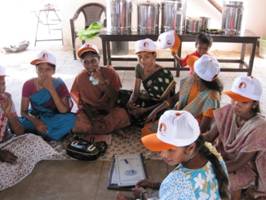 These teachers have been trained on Child Rights, Child Protection from various abuses like, Physical, Emotional, Discrimination and Sexual abuses and they make sure that the Children are also aware of their Rights and the protective mechanisms in the villages against any possible abuses and the risk they have in their surroundings.
These teachers have been trained on Child Rights, Child Protection from various abuses like, Physical, Emotional, Discrimination and Sexual abuses and they make sure that the Children are also aware of their Rights and the protective mechanisms in the villages against any possible abuses and the risk they have in their surroundings.
Presently there are 20 teachers are working and the teacher’s have been trained in the following aspects,
- Child Rights
- UNCRC
- Child Protection
- Protection from Abuses like – Physical, Emotional, Social and Sexual
- Protection from Discrimination, neglect, violence, etc
- Play way method
- Activities based Learning
- Learning by doing
- Positive Discipline Techniques
- Non violence & Ahimsa
- Code of Conduct ‘
- Gender equity and etc,.
Playful Saturdays:
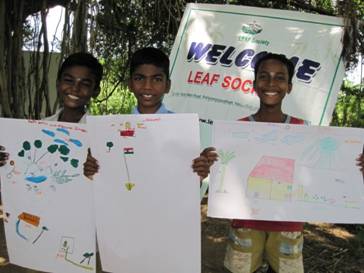 On Saturday, these Children will come to these centers, as Saturday’s are fully dedicated for Play, Play way learning, Activity based learning, Child Parliaments, tours, exploratory walks, etc.
On Saturday, these Children will come to these centers, as Saturday’s are fully dedicated for Play, Play way learning, Activity based learning, Child Parliaments, tours, exploratory walks, etc.
Child Parliament:
Each center in these villages should have a Child Parliament and they should compulsorily exercise and enjoy the various democratic activities like, sessions in Parliaments, various committees, presentation of committees, process of election, etc. These parliaments constitute various committees to oversee & monitor the Child Parliaments and these committees on every Saturday’s report to Parliaments. The committee’s like Health, Education, Play committee, Personal Hygiene, gender equity, kitchen garden, water & sanitation, etc. These committees are constituted by Children and the Children will be switched over to other committee’s on bi - monthly basis. Each committee’s have a specific roles & responsibilities and they will report to the parliaments.
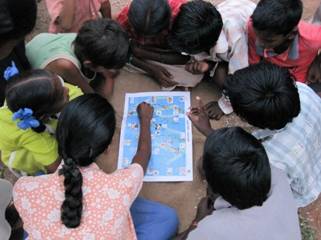 The parliament will have a speaker, a president, vice president, prime minister, ministers and other members. They will meet on every Saturday and will listen to the committee’s recommendations and discus the issues, which concern them. These parliaments are elected once in six months and the Children will have the opportunity to practice their franchises during these elections.
The parliament will have a speaker, a president, vice president, prime minister, ministers and other members. They will meet on every Saturday and will listen to the committee’s recommendations and discus the issues, which concern them. These parliaments are elected once in six months and the Children will have the opportunity to practice their franchises during these elections.
This practice ensures that the Children are exposed to parliamentary practices, democratic values, elections, etc. This practice will inculcate democratic values among the young minds and will have a better perspective about civil society and justice.
These are the following committee’s of a Child Parliament,
Health:
The members of Health committee are trained in basic first Aid and have preliminary knowledge on providing first aid for small wounds, cuts, etc. These Children are also provided with few basic medicines, like ointments, band aid, etc. This Committee will report to parliament on weekly basis and the number of cases they have attended during the week days and the reasons for the wounds and cuts for Children. The parliament reviews these report and make suggestion for Children not to indulge in such play methods, which causes them small wounds, cuts and scratches.
Education Committee:
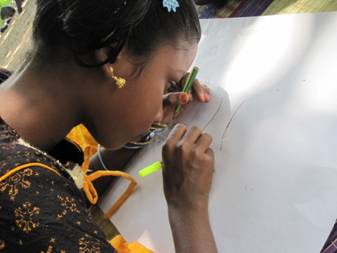 This committee monitors the enrolment of the centers and if some is not present for the day, they will make a personal visit to their residence and report to the teacher and they also make sure that the Children are punctual for Centers and they reach home safe after the classes. These committee members has the major responsibility of keeping the teaching materials like boards, chalks, charts, paintings, pictures in a secured manner and it’s their responsibility to provide during the classes.
This committee monitors the enrolment of the centers and if some is not present for the day, they will make a personal visit to their residence and report to the teacher and they also make sure that the Children are punctual for Centers and they reach home safe after the classes. These committee members has the major responsibility of keeping the teaching materials like boards, chalks, charts, paintings, pictures in a secured manner and it’s their responsibility to provide during the classes.
Play Committee:
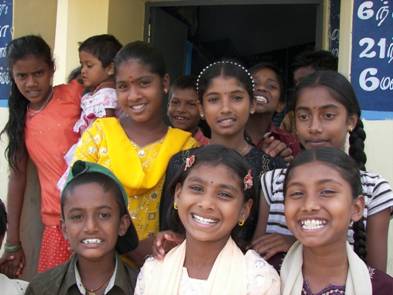 This committee make sure that they get the opportunity to play during the evening centers and they will ensure that every Children play on Saturdays. These committee members also find out innovativ e ways to include any differently able Children in the centers and will make sure that they also get the equal opportunity to play during the play sessions. It’s their responsibility that each committee should introduce a new game during their period.
This committee make sure that they get the opportunity to play during the evening centers and they will ensure that every Children play on Saturdays. These committee members also find out innovativ e ways to include any differently able Children in the centers and will make sure that they also get the equal opportunity to play during the play sessions. It’s their responsibility that each committee should introduce a new game during their period.
Gender Committee:
This committee mainly focuses to ensure that the gender balance and equity is being maintained during the evening centers and all other activities. This committee makes sure that the boys and girls get 50% share in each of these committees and they maintain the same ratio in the parliaments as well. This is just being facilitated from our end, as the process and this is not to blame or finger point any boys or girls in the center. This practice will inculcate ideal values among the Children and will have an opportunity to think about their current values systems vis-à-vis male dominated society and decision making systems.
Personal Hygiene Committee:
This committee monitors the Children in the centers like, whether their nails have been cut properly, whether they have clean nails, have washed their clothes, bags, slippers, etc. They advice their Children on all personal hygiene measure’s like, taking bath, combing their hair, wearing washed clothes, walking with slippers or sandals, clean bags, etc. These committee members have been trained on good practices, the diseases that may occur due to not having personal hygiene, etc.
Water & Sanitation Committee:
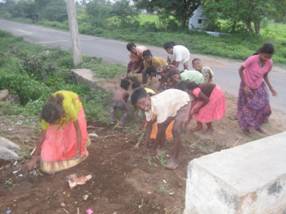 This committee will train other Children on safe drinking water practices, keeping their hands clean while taking water from water drum, clean sanitation practices, washing their hands after every visit to toilets with soap, avoiding open defecation, etc. These committees will draw different pictures, on charts and on boards and will paste them in their centers. The Children in these committees will be trained on good sanitation practices and they will also be oriented on the disease occur due to non hygienic sanitation practices, out breaks, communicable diseases, etc.
This committee will train other Children on safe drinking water practices, keeping their hands clean while taking water from water drum, clean sanitation practices, washing their hands after every visit to toilets with soap, avoiding open defecation, etc. These committees will draw different pictures, on charts and on boards and will paste them in their centers. The Children in these committees will be trained on good sanitation practices and they will also be oriented on the disease occur due to non hygienic sanitation practices, out breaks, communicable diseases, etc.
Kitchen garden Committee:
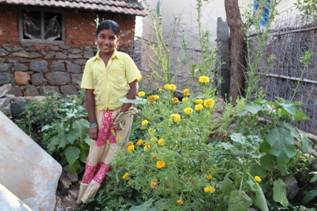 The members in this committee will train and orient the Children in the villages on the importance of having a small garden in their houses. This committee will suggest having a 10’x10’ garden using all waste water in their houses. These committees will clearly explain the benefit of this activity like,
The members in this committee will train and orient the Children in the villages on the importance of having a small garden in their houses. This committee will suggest having a 10’x10’ garden using all waste water in their houses. These committees will clearly explain the benefit of this activity like,




